There is now worldwide consensus that plough-based farming, as still widely practised, has unsustainable elements, whose continued promotion and application endangers global capacities to respond to the food security concerns. Ploughing and removal of crop residues after harvest leave soil naked and vulnerable to wind and rain, resulting in gradual, often unnoticed erosion of soil. This is like tire wear on your car — unless given the attention and respect it deserves, catastrophe is only a matter of time. Erosion also puts carbon into the air where it contributes to climate change.
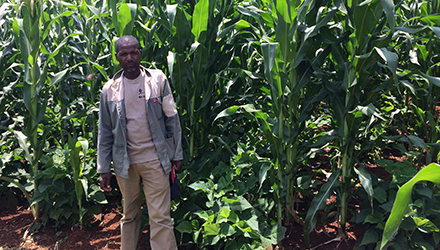
The CA Farmer Innovation Programme for smallholders has been implemented in the Okahlamba District Municipality (Bergville) area of KwaZulu-Natal since September 2013 as a joint initiative between Grain SA and Mahlathini Development Foundation.
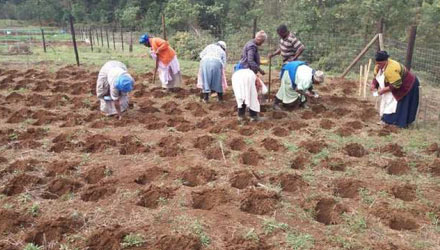
The Grain SA farmer-centred Innovation System approach has been instrumental to the success of the CA project intervention in Bergville and was introduced into other communities and maize producing areas within the province to scale out (expand) CA.
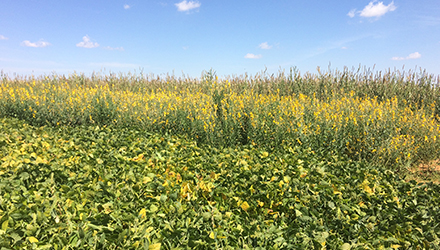
This project was initiated in 2013 through collaboration between the Grain SA CA Farmer Innovation Programme (FIP) and the Ottosdal No-till Club. A number of key stakeholders, who could play a role in the implementation of the project, were identified and involved at the start of the project.
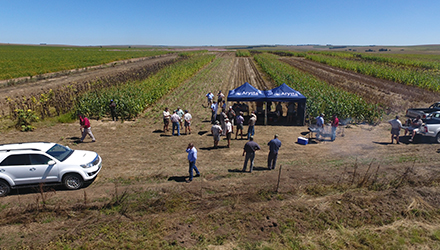
The north-eastern Free State Province has been identified by Grain SA as a suitable target area to promote CA among farmers in order to improve their sustainability and profitability.
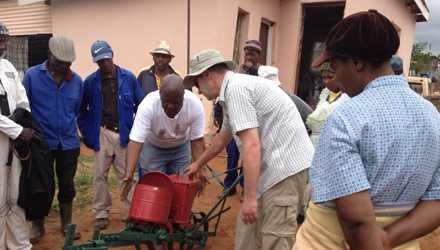
The CA FIP for smallholders has been implemented in the Matatiele area of the Eastern Cape since September 2013 and then expanded in 2015 to include areas in Southern KZN as a joint initiative between Grain SA and Mahlathini Development Foundation (MDF).
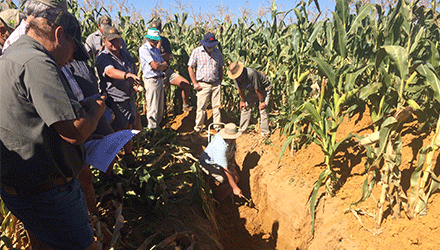
Investigating the impacts of conservation agriculture practices on soil health as key to sustainable dry land maize production systems on semi-arid sandy soils with water tables in the north western Free State. The current project builds on previous projects funded by the Maize Trust, where the main objective had been the implementation and evaluation of various cultivation practice options for sustainable dry land maize production systems on semi-arid sandy soils with water tables in the north western Free State.
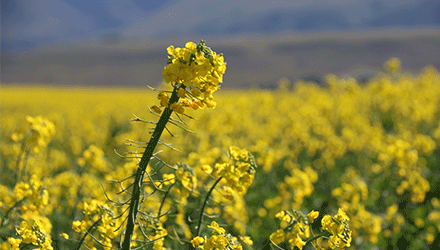
Phase 1 of this project aimed to calculate the carbon footprint in kg carbon dioxide equivalent (CO2e) per ton of different winter grain farming regimes from existing data and a predicted ideal future scenario in the Western Cape. The current scenario includes the main inputs and yields for winter grain cultivation using the conventional (CT) and conservation agriculture (CA) farming regimes. The future scenario includes an ideal but realistic CA system predicted to be adopted by most grain producers twenty years into the future with corresponding inputs and yields.